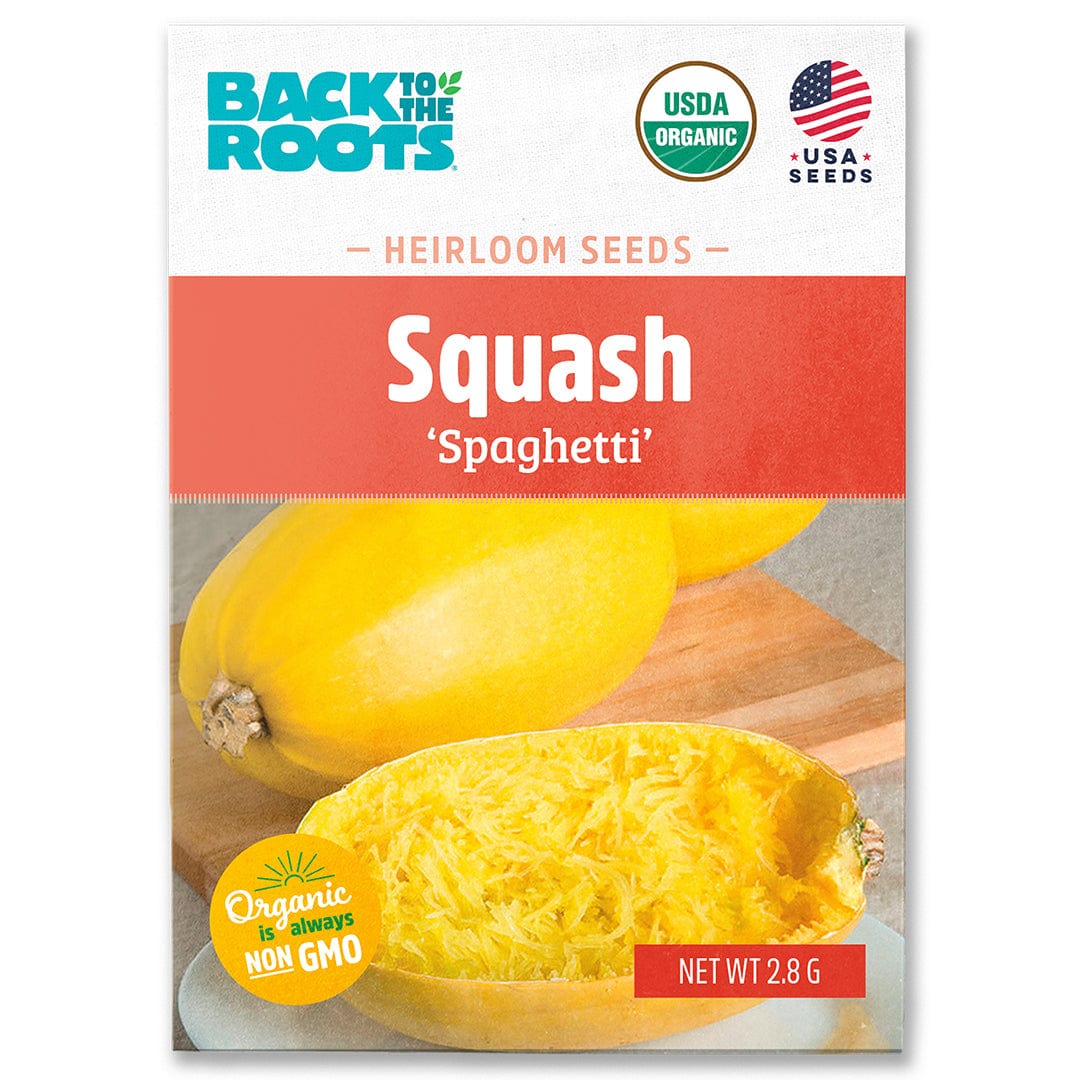
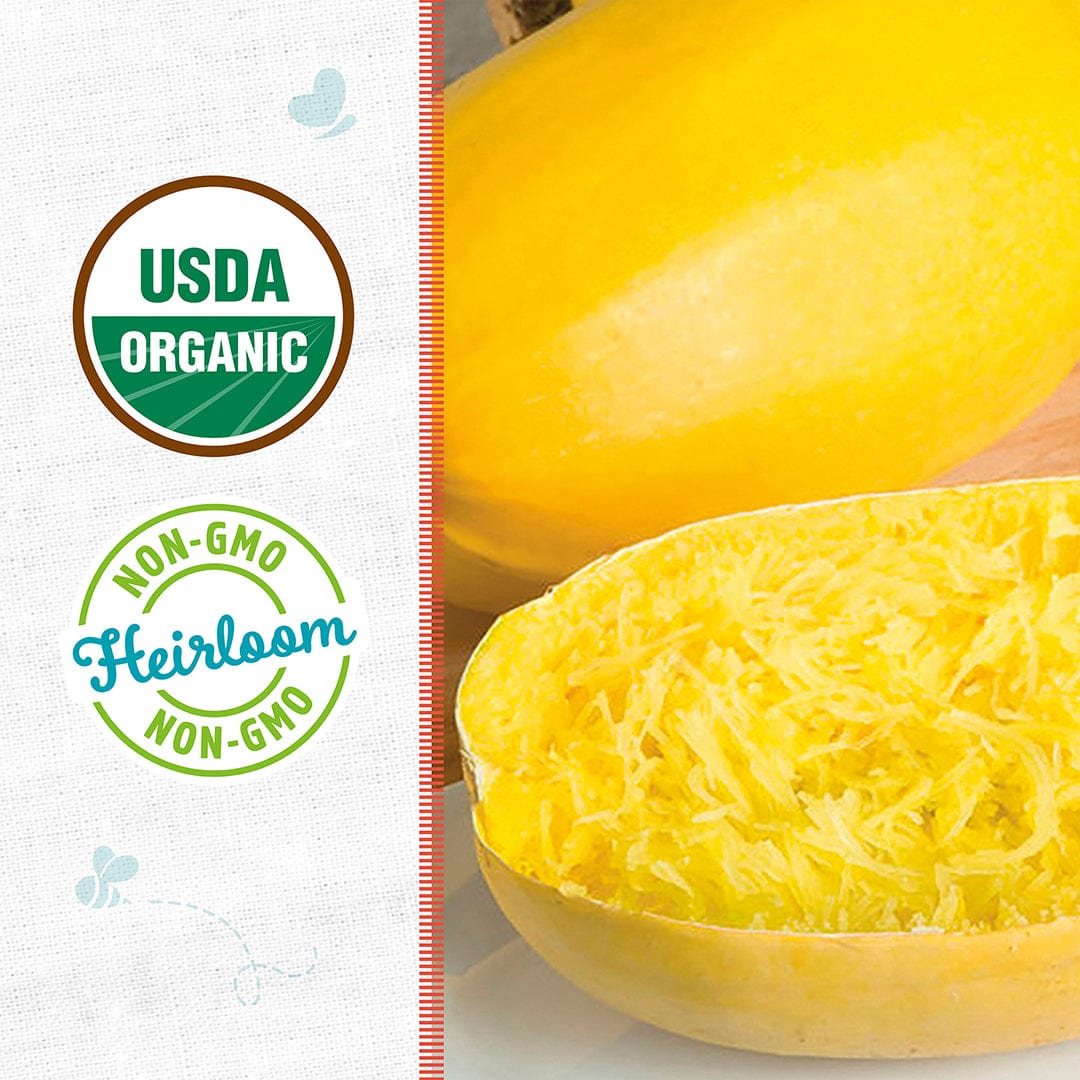
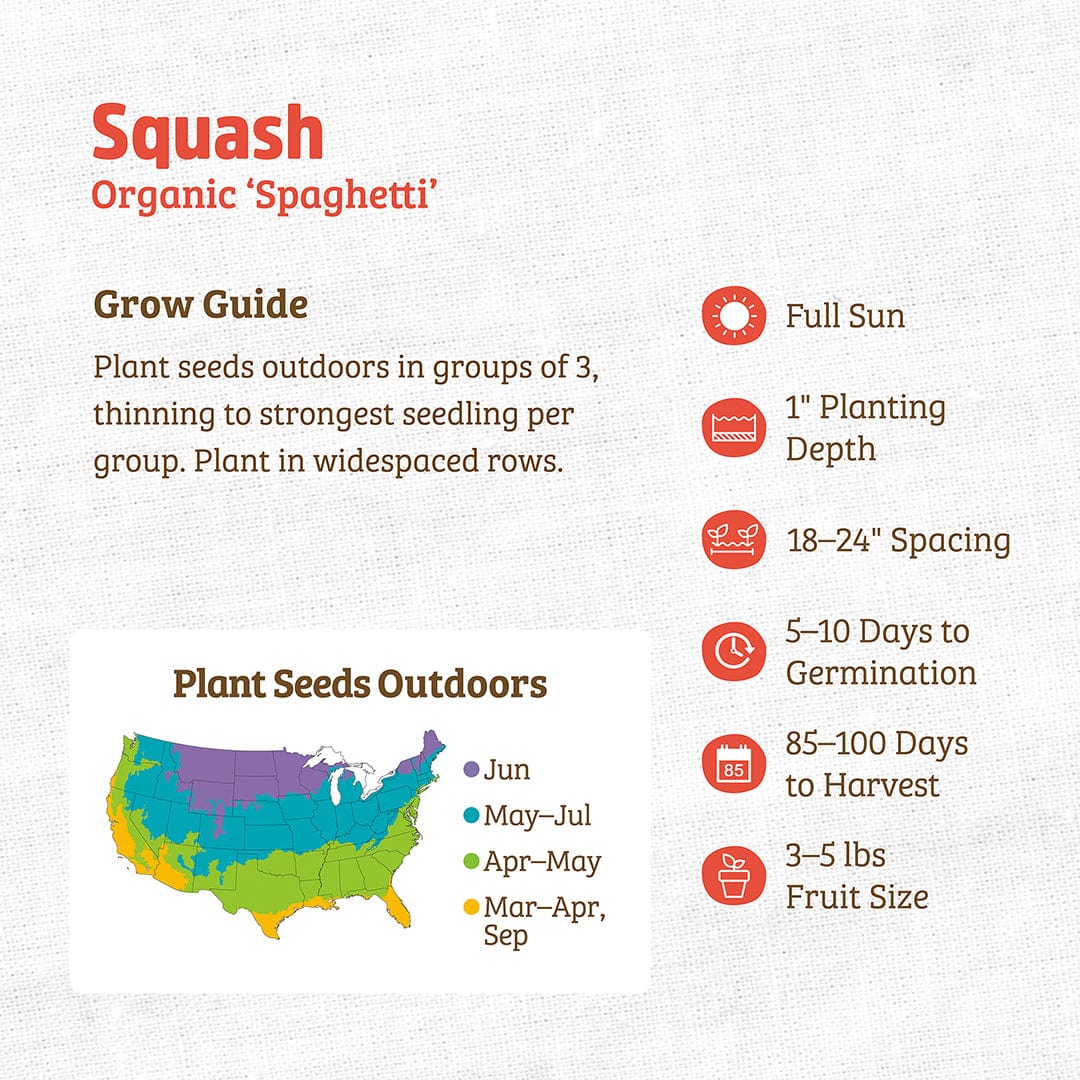
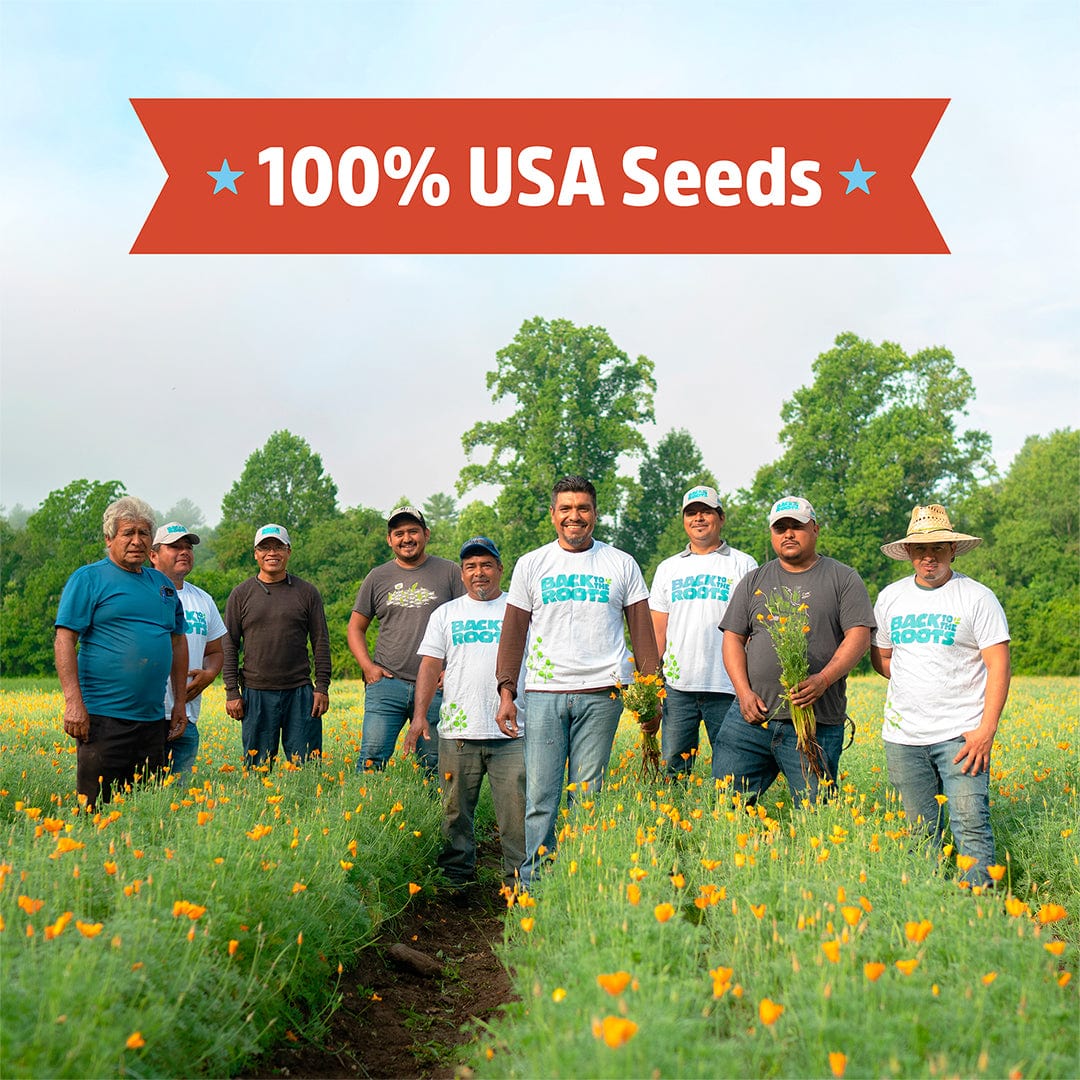
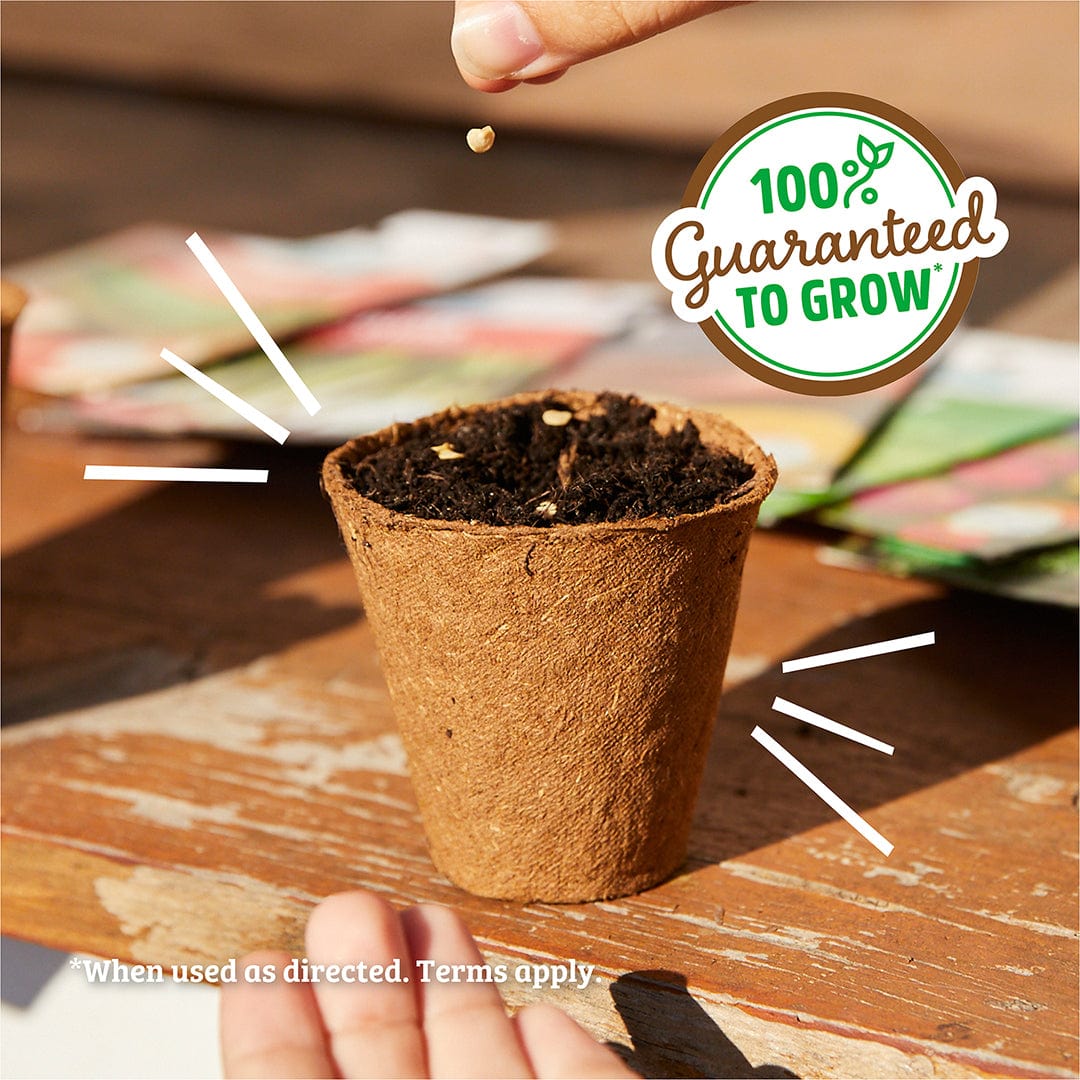

Use Code "EarlySeason50" for Limited Time Bulk Soil Savings!






Treasured for their ease of cultivation, high food production and excellent storage, squashes have been a staple crop in the Americas for millennia. Tender summer squash is available abundantly throughout the summer, while winter squash can be stored for use throughout the winter.
Squash are frost sensitive, heat loving crops that require temperatures above 70°F before planting. They grow best on well drained, fertile soils with a pH between 6.0-7.5. Supply consistent moisture with drip irrigation to reduce mildew and other foliar diseases. For best quality crop, provide full sun (6+ hours of direct sunlight per day). Squash also need ample vining space, so plan accordingly.
Squash are most commonly planted outdoors directly in the garden. Plant seeds in late spring when the soil is at least 70°F and frost danger has passed. Use our grow calendar tool to find specific planting dates for your region! Seeds germinate in 7-14 days.
Plant 3 seeds in groupings 1/2-1" deep, spaced 18-36" apart depending on variety. Thin to one plant per spot as seedlings develop.
CareSquash are heavy feeders. Regular treatments of manure, compost, or fertilizer mixed with water will sustain good growth. Use a high nitrogen formula in early plant growth, and switch to a high phosphorus fertilizer before the blooming period.
Winter squash will need lots of water, especially when fruit sets. Water soil deeply, but avoid getting leaves or fruit wet. Reduce watering as the squash reach maturity.
Harvest squash when vines have begun to die back and fruit has reached its full size and final color. Press your nail into the skin, and if it resists puncture then it is ripe. Cut fruit from vines leaving a 1-2 inch stem for good storage. Let cure in a warm,dry place, then store at 50-55°F.

Organic Squash Seeds — 'Spaghetti'







Be the first to know about new collections and exclusive offers.